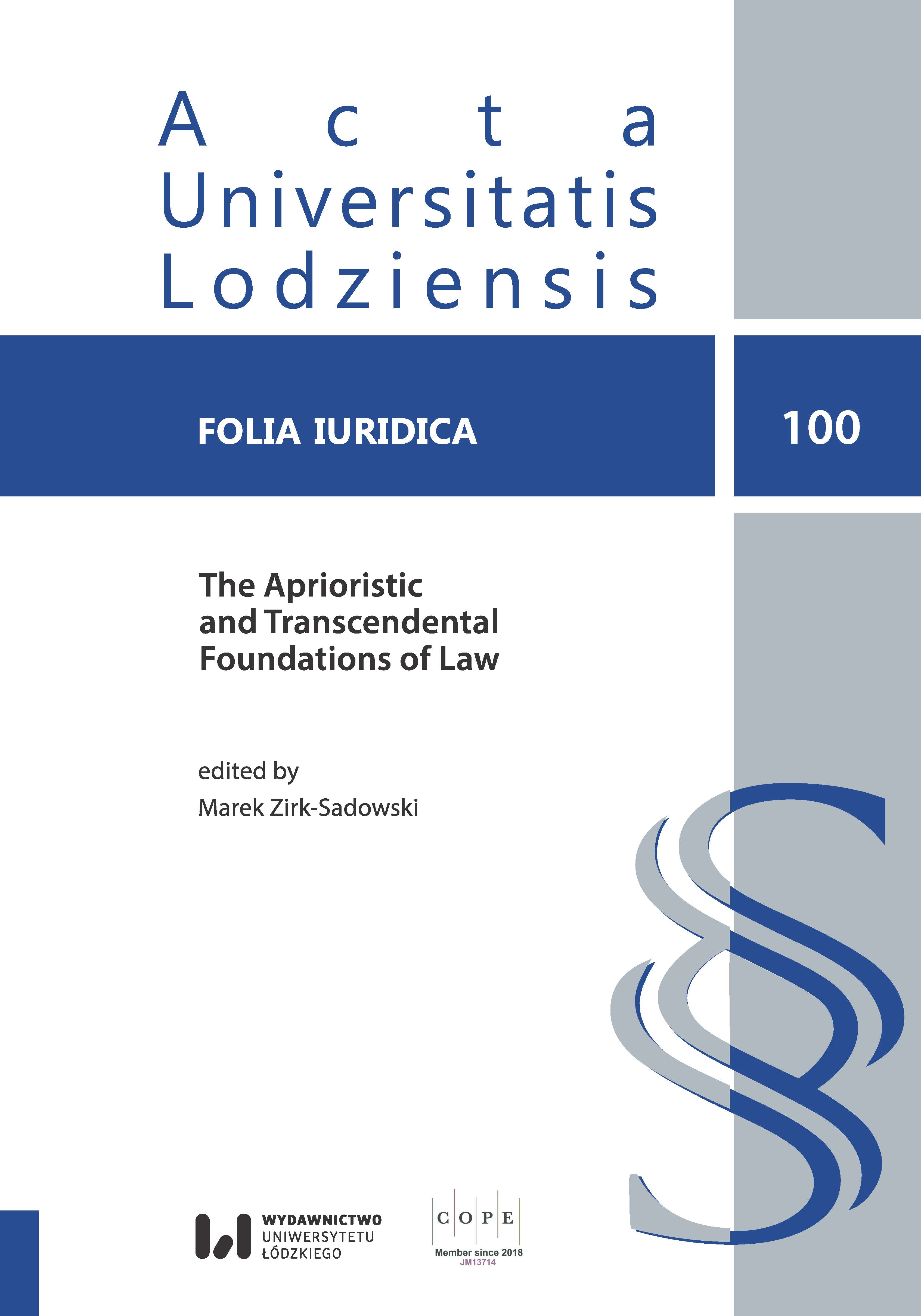Kant’s Apriorical Idea of Law: Two Ways of its Justification
Kant’s Apriorical Idea of Law: Two Ways of its Justification
Author(s): Wojciech ZałuskiSubject(s): Law, Constitution, Jurisprudence, Philosophy of Law
Published by: Wydawnictwo Uniwersytetu Łódzkiego
Keywords: idea of law; external freedom; the categorical imperative; radical evil
Summary/Abstract: Kant proposed an apriorical account of the idea of law, according to which the law’s only legitimate goal is to guarantee for each citizen a possibly broad scope of external freedom compatible with the same scope of all other citizens. However, Kant did not make it entirely clear how this idea is to be justified. This paper presents two ways of justification, drawing on Kant’s view of the human nature. The first one appeals to the apriorical components of this view (rationality, freedom, equality, and dignity), and the second one is based on its empirical components (the ambivalent account of human predispositions).
Journal: Acta Universitatis Lodziensis. Folia Iuridica
- Issue Year: 2022
- Issue No: 100
- Page Range: 21-34
- Page Count: 14
- Language: English

